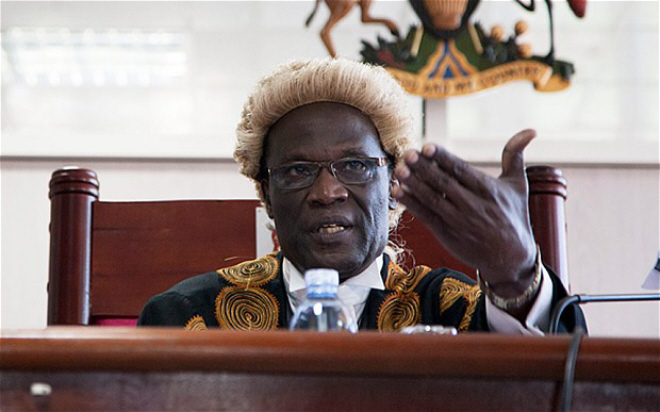A while ago, the media released a story about a “golden handshake” in which shs 6 billion was reportedly paid (given) to mainly government employees for winning a case against an Oil and Gas company. The matter has stirred public discussion all the way to Parliament.
But alas (yes, alas is ~the right~ *a* word), a concerned citizen, working with the Electoral Commission went to Court and obtained an order from Justice Kavuma (Deputy Chief Justice) which order banned anyone, including Parliament, from discussing the issue until the court case is finalized. This decision shocked the nation, including Parliament.
As the result, the Speaker of Parliament called it a “stupid” order and asked the Attorney General to go to Court and have the order immediately removed.
The public has been asking questions about whether this order was lawful, and if indeed Courts can ban Parliament from discussing such a matter.
But before we go into the “Handshake” case and the “Stupid” order, here is a brief background on some legal things you need to know about these things called Constitutional Petitions and how the order came to be issued.
BRIEF LEGAL BACKGROUND: In Uganda, the Constitution is the “senior” law and all law are “junior” laws. This means all things done should not go against the Constitution.
If a person does a thing which goes against the Constitution, then such a thing is called “Unconstitutional”.
The same applies to laws. If a certain thing in a junior law is against the Constitution, then such a thing (provision) in that junior law is said to be unconstitutional.
For example, if you remember, the law on Adultery only seemed to be against women, and yet the Constitution (Senior law) says laws should be fair to both men and women. And so people took the case to Court, and Court decided that indeed, that law was Unconstitutional because it went against the Constitutional provision which says both men and women are equal.
If a person says an act is against the Constitution, then the person takes the Court case to the Constitutional Court, which is in charge of interpreting the Constitution.
BACK TO THE GOLDEN HANDSHAKE CASE: On 9th of January, a one Sabiiti went to the Constitutional Court saying the way in which some members were paid shs. 6 billion for having won the oil case was unconstitutional.
In a rather “funny” twist, he also asked Court to issue a ban on anyone including Parliament from discussing this issue until Court makes a final decision on the Constitutional Case which he filed (which might even take years).
So, the matter was heard by a single Judge, Justice Kavuma (Deputy Chief Justice) who issued the said order banning anyone from discussing this issue until the case is heard.
WAS THE CHIEF JUSTICE RIGHT TO DO SO: Under the law, yes, there was nothing unlawful he did since he acted within the law.
WHAT NEXT: During the Parliamentary session, the Speaker asked the Attorney General to immediately go to Court and have that order set aside.
WHY THE ATTORNEY GENERAL: Because under the law, the Attorney General is the Government Lawyer and so in all cases involving the Government, the Attorney General will represent the Government.
WILL THE ORDER BE SET ASIDE, IF YES, HOW: You see, under the law, in most situations, cases before the Constitutional Court are usually dealt with by 3 Judges. However, there are situations (like in this handshake case), where one Judge can handle a case.
But if a person is not happy with the decision of one Judge, such a person can appeal against the decision of one Judge to a panel of 3 Judges.
So in this case, one possible scenario to be expected is that the Attorney General will appeal against this decision to a panel of 3 judges, who might then sit, and decide to do away with the order.

Do you have any questions or comments relating to this topic? We would love to hear from you. You can reach us through email at ask@barefootlaw.org, call 0414660539, on Twitter @BarefootlawUg.
You can also send a message through our Facebook inbox or post your queries on our wall.











